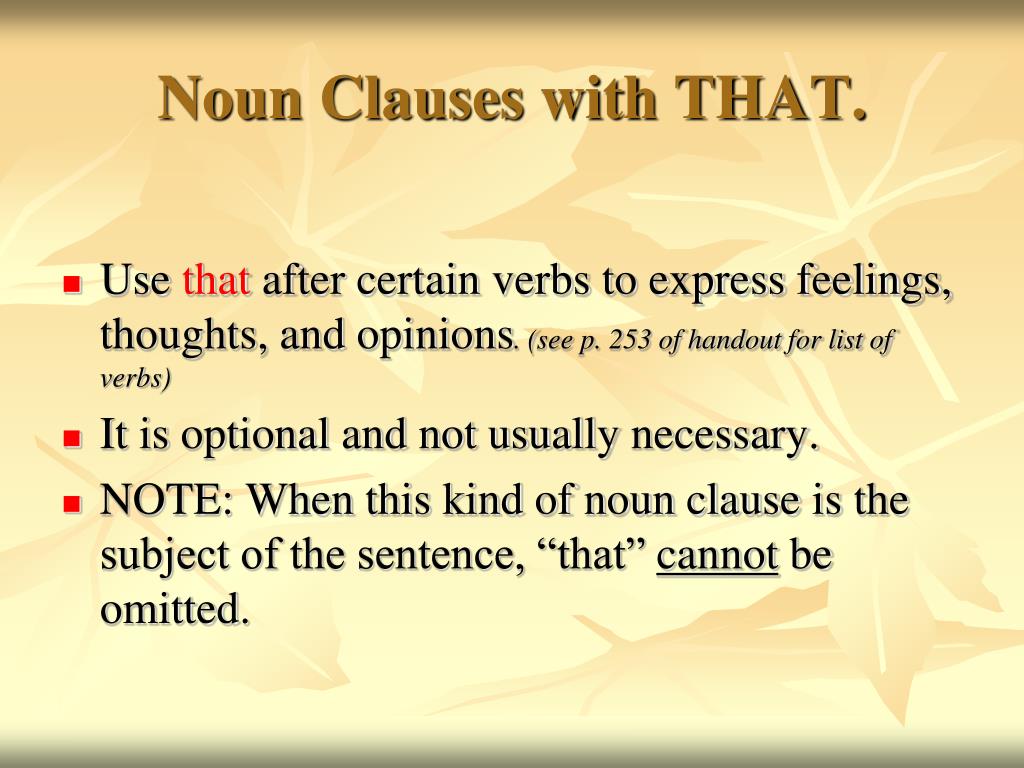What Is A Dependent Noun Clause / A noun clause is a dependent clause that contains a subject and a verb.. She was saddened by what she had read. Common nouns are more generalized by comparison, and they can be further divided into abstract, collective, compound. Noun clauses generally begin with words such as how, that, what, whatever, when, where, whether, which, whichever, who, whoever, whom, whomever, and why. They begin with word such as how,that, what, whatever,when, where, whether, which, whichever, who,whoever,whom,whomever,and why. Since it is a dependent clause, it cannot stand alone as a sentence.
It contains a subject and a verb. Common nouns are more generalized by comparison, and they can be further divided into abstract, collective, compound. A noun clause usually begins with the following words: Adjective / relative clauses the third type of dependent clause is the adjective or relative clause. A noun clause is a dependent clause that takes the place of any noun in the sentence, whether they are subjects, objects, or subject complements.
Includes complements, modifiers and determiners.
A content clause, also known as a noun clause, provides content implied or commented upon by its main clause. Adverbial, adjectival, nominal dependent clauses may work like adverbs, adjectives, or nouns in complex sentences. A dependent clause (or subordinate clause) is a clause that cannot stand alone as a complete sentence because it does not express a complete thought. A noun clause is a dependent clause that takes the place of any noun in the sentence, whether they are subjects, objects, or subject complements. Like all clauses, a dependent clause has a subject and verb. An adjective clause is a dependent clause. Adjective, adverb, and noun.remember that a subordinate clause has a subject and a verb, but it does not express a complete thought. A noun clause is a dependent clause that acts as a noun. These clauses include adverb clauses, adjective clauses and noun clauses. A dependent clause is a. A noun clause refers to a clause that serves the same purpose as a noun and is usually dependent. The two forms of noun clauses in the english language are finite noun clauses and nonfinite noun clauses. It contains an adverbial clause.
A noun clause is a dependent clause that acts as a noun. Noun clauses can act as a subject, direct or indirect objects or predicate nominatives. A noun clause is a dependent (or subordinate clause) that works as a noun. It can be the subject or object of a verb. A noun clause (also called nominal clause) is a dependent clause that plays the role of a noun.

Examples of dependent clauses here are some examples of dependent clauses (shaded).
Take a look at some sample sentences containing noun clauses to understand their purpose and function. Independent clause, which has a subject and a verb and can stand alone in a sentence. It contains a complete thought. If the sentence is still grammatically complete, then the part you replaced is a noun clause. It is also known as a subordinate clause. In addition, it can also function as a subject, direct object, preposition, or an appositive. It can be used as the subject, direct object, indirect object, object of a preposition, subject complement, or appositive. A dependent clause is a. A noun clause functions as noun in a sentence. Noun clauses perform the same functions of a noun. Stephanie locked the door quickly. Remember, there are two main types of clauses: A noun clause is a dependent clause that takes the place of any noun in the sentence, whether they are subjects, objects, or subject complements.
Anytime that you use a noun in a sentence, then it is possible to also use a noun clause. A subordinate clause that functions as a noun within a main clause. A noun clause is a dependent (or subordinate clause) that works as a noun.it can be the subject of a sentence, an object, or a complement.like all nouns, the purpose of a noun clause is to name a person, place, thing, or idea. Independent clause, which has a subject and a verb and can stand alone in a sentence. It can basically be a name of a person, place, idea, or thing.

Dependent or subordinate clauses are clauses that cannot function.
A noun clause is a dependent (or subordinate clause) that works as a noun.it can be the subject of a sentence, an object, or a complement.like all nouns, the purpose of a noun clause is to name a person, place, thing, or idea. It is also known as a subordinate clause. A noun clause (also called nominal clause) is a dependent clause that plays the role of a noun. They begin with word such as how,that, what, whatever,when, where, whether, which, whichever, who,whoever,whom,whomever,and why. A noun clause is a dependent clause that takes the place of any noun in the sentence, whether they are subjects, objects, or subject complements. A noun clause is a type of dependent clause that is able to function grammatically like a noun in a sentence. A dependent clause is a group of words with a subject and a verb. A noun clause is a dependent clause that acts as a noun. Stephanie locked the door quickly. A content clause, also known as a noun clause, provides content implied or commented upon by its main clause. A noun clause is a dependent clause that can be used in the same way as a noun or pronoun. Who, why, whom, what, that, whether, how, when, whoever, where, and. In addition, it can also function as a subject, direct object, preposition, or an appositive.
Simply put, a noun clause is a dependent clause that takes the place of a noun in the sentence what is a noun clause. It contains an adverbial clause.

0 Komentar